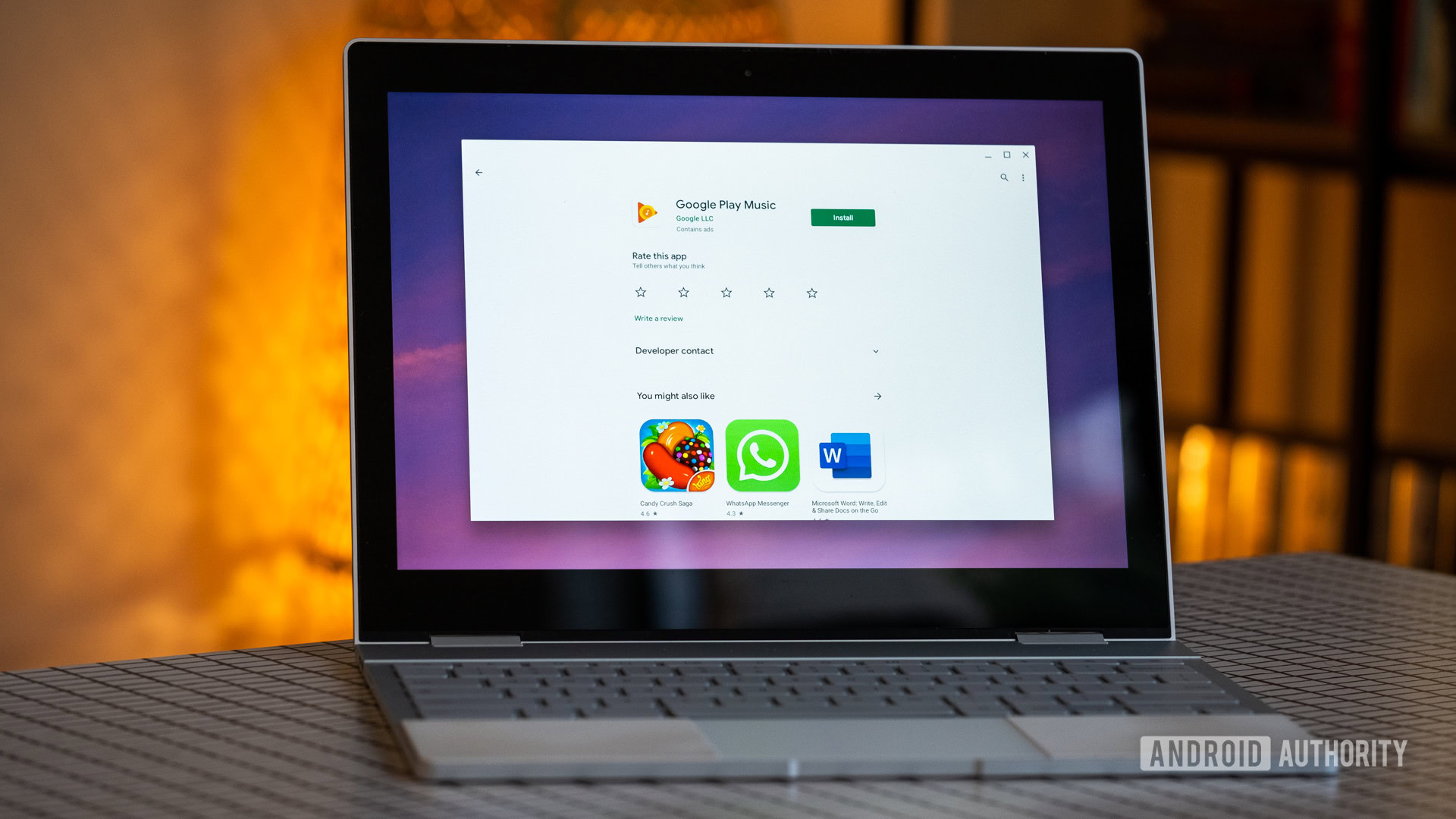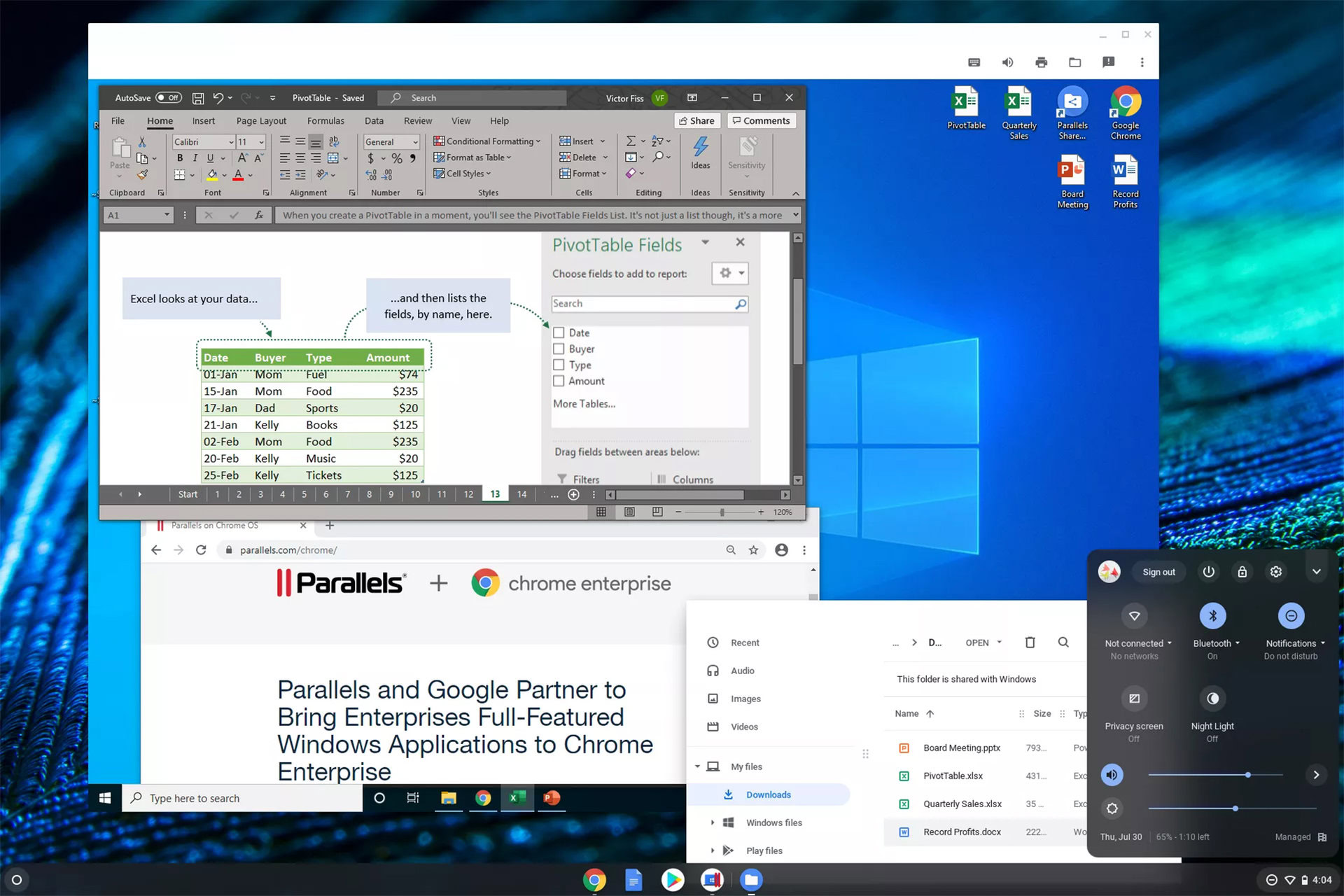Affiliate links on Android Authority may earn us a commission. Learn more.
Windows apps coming to Chrome OS, but not through dual boot

- A google manager has confirmed that Windows apps on Chrome OS will be a reality soon enough.
- Unfortunately, Windows will be virtualized through Parallels instead of the hoped-for dual boot option.
- Chromebooks will need to be pretty powerful for this to work, and the service won’t be free.
Although Chromebooks have come a long way, there are still plenty of folks out there who won’t use one as their go-to machine. This is usually because there’s a Windows application that Chrome OS can’t run and the substitutes pale in comparison. Luckily, we now know that Windows apps on Chrome OS are going to be supported soon.
In an interview with The Verge, Cyrus Mistry, group product manager for Chrome OS, details what Google has in mind for this new feature. While the news is definitely exciting, you should temper your expectations, as it might not be all you hoped for.
Windows apps on Chrome OS: How will it work?
Most people were hoping that Chromebooks would eventually gain the ability to dual-boot — meaning you could house both Chrome OS and Windows 10 on one machine and choose which one to boot at startup. However, Mistry confirms in the interview that that will not be the case.
Instead, Chrome OS will make use of Parallels Desktop, a popular system that virtualizes machines within an existing operating system. This is how macOS users can use Windows programs.
“We absolutely looked at dual-boot,” Mistry said. “There are pros and cons to both options, but where we landed is that security is absolutely paramount to Chrome OS.”
In other words, dual-booting both Windows and Chrome OS required too many security sacrifices for Chromebooks. Since security is such a huge aspect of what’s made Chrome OS such a hit, it makes sense that Google didn’t want to ruin that in favor of adding Windows support.
Just like with macOS, you’ll need to purchase Parallels as well as a Windows 10 license for this system to work on a Chromebook. On top of that, you’ll need a Chromebook that can handle Windows apps, which might be the biggest hurdle for most businesses and users.
Related: 8 years on from the first Chromebooks: Google was right about them
Although there are quite a few Chromebooks now that feature high-end laptop specs, most popular Chrome OS devices are low-powered to keep them inexpensive. Folks who own those types of systems will need to upgrade to a more powerful machine for this to work.
Windows apps on Chrome OS: Does it make sense?
While the idea of running Windows apps in Chrome OS sounds great on paper, it presents a few paradoxes. For example, the primary benefits of Chromebooks are that they are incredibly cheap and very easy to use. For Windows apps to run, though, you’ll need a more expensive Chromebook and need to learn how virtual machines work in order to use your Windows apps.
Related: Here are all the Chromebooks that run Android and Linux apps
In addition, the people out there who would be fine upgrading their Chromebook to a new model to get this feature will be faced with a real choice: “Do I spend hundreds of dollars on a fancy Chromebook so I can run Windows apps, or do I just buy a Windows laptop?” At a certain price point, it might make more sense to get the Windows laptop.
It’s likely that this option of running Windows apps on Chrome OS will only really appeal to a small subset of users, namely those who already have a high-powered Chromebook and are tech-savvy enough to understand Parallels.
All that is likely why Google seems to be mostly focused on the enterprise sector for now, rather than gearing this towards consumers. However, if Google can make Chrome OS support Parallels for businesses, there’s no reason it couldn’t do the same for the general consumer.
Regardless, there is no set date for this new feature to roll out. It’s nice to know that Google is definitely going to make it happen, though.
